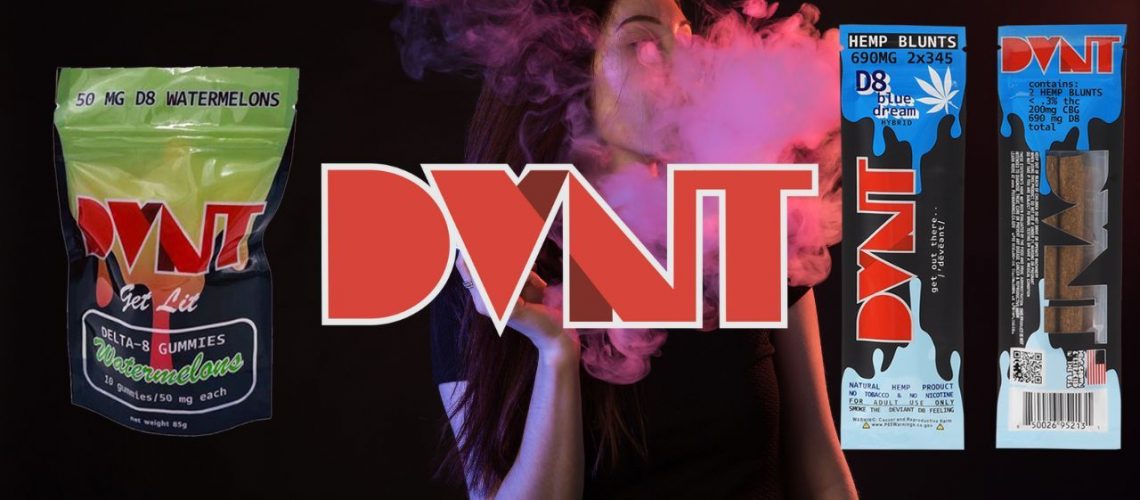Delta 8 vs CBD

When it comes to delta 8 vs CBD, there are probably just as many similarities as differences. We all remember when we first started seeing CBD on the shelves. It was everywhere– grocery stores, gas stations, coffee shops offering it as an additive to your morning brew…. There was a lot of discussion surrounding this popular “new” cannabinoid. “It’s like weed but not weed”; “It gets you a little high”; “Yea, totally legal”; “It works for everything wrong with you!”. I feel like when I first heard about CBD, everyone was claiming it had psychoactive effects (false). Regardless of how much knowledge they actually had, people young and old were eager to offer their two cents.
Today, there’s a different “new” cannabinoid in town. Just as with CBD, everyone has something to say about delta 8. But what’s the real deal? What is the difference when it comes to delta 8 vs CBD? Get the facts here and learn which of these cannabinoids is right for you.
In the meantime, if you have a craving for some delta 8 in your life, you’re in the right place. Shop our selection of prerolls, blunts, and gummies. Products are crafted from organic ingredients and lab tested so you can shop with confidence.
Where do they come from?
CBD is a naturally occurring cannabinoid found in hemp and cannabis. In cannabis, it is the second most abundant cannabinoid after THC. Delta 8 is also a naturally occurring cannabinoid; however, it is only found in trace amounts. Excluding what is sold in state run dispensaries, all delta 8 and CBD on the market are derived from hemp.
Though delta 8 isn’t naturally abundant, it can be made by altering the structure of more accessible cannabinoids. This process is called isomerization. Chemists begin by extracting another cannabinoid, such as CBD, from the hemp. The CBD is dissolved into a solvent, mixed with an acid (such as hydrochloric acid), heated to 100°C, and stirred for 18+ hours on a stirrer hot plate. The solution is then washed and neutralized. The final, vital step is to test the product in a lab to ensure quality and safety.
The endocannabinoid system
How delta 8 and CBD affect their users is determined by their interaction with the endocannabinoid system. Our endocannabinoid system is made up of CB1 receptors and CB2 receptors. CB1 receptors are found primarily in the central nervous system, and regulate various brain functions. When a cannabinoid binds to the CB1 receptors it can result in feeling high, sedation, motor impairment, pain relief, increased heart rate, and appetite stimulation. If you’re thinking this sounds like what happens when you consume THC, then you would be correct as THC binds to the CB1 receptors.
CB2 receptors are located in the immune cells, spleen, and certain bone and liver cells. When a cannabinoid binds with the CB2 receptors, it can produce anti-inflammatory effects.
Delta 8 vs CBD: potency & effects
CBD interacts with both the CB1 and CB2 receptors without actually binding to them. CBD reduces CB1 signaling, while boosting CB2 signaling. This makes CBD the ideal cannabinoid for users looking to experience pain relief without getting high. Unlike delta 8, CBD is not psychoactive.
Delta 8 binds to CB1 receptors, which results in a high. Compared to traditional THC, the bond is not as strong, so delta 8 is less potent. When it comes to the CB2 receptors, delta 8 bonds to them with approximately the same strength as traditional THC. This means it is potentially useful in suppressing inflammation.
Are they legal?
Delta 8 vs CBD legality is a somewhat complicated issue. Both cannabinoids have flooded the market as a result of the passing of the 2018 Farm Bill. This bill legalized hemp on a federal level. Legally, hemp is defined as cannabis containing .3% or less of delta 9 THC (the main psychoactive ingredient). Consequently, all cannabinoids derived from hemp also became legal federally.
Since then, certain states have been cracking down. Delta 8 has faced significantly more backlash than CBD due to its psychoactive nature. Many states have imposed bans or regulations on delta 8 recently. Check out this guide for an overview of delta 8 legislation by state (current as of August 2023). CBD (from hemp) remains legal in the vast majority of states, although some have interesting and oddly specific restrictions.
The bottom line
So, is delta 8 or CBD the right cannabinoid for you? If you absolutely do not want to get high, I would suggest you give CBD a try. If you’re fine with an uplifting, euphoric buzz accompanying your relief, then delta 8 is for you. Be sure to check out the laws in your state regarding both of these cannabinoids before indulging, and remember, DVNT has you covered for all your delta 8 needs.
- cbd, d8, delta 8, delta 8 vs cbd, hemp
